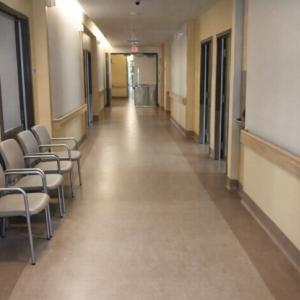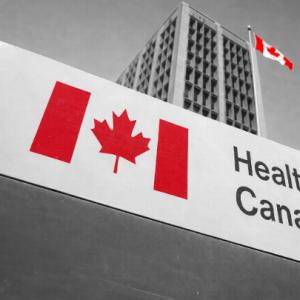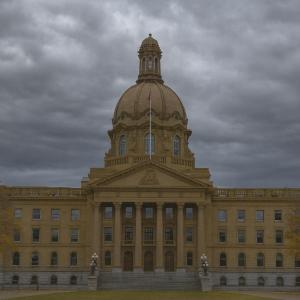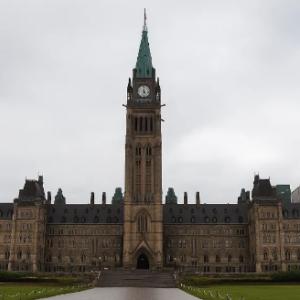Expanded Scope of Practice Will Ultimately Hurt Patients
On October 1, the CBC published an article on how a program to expand the scope of practice of pharmacists in New Brunswick completely fell apart and was cancelled. There’s a litany of reasons why the project died. But the ones that stood out for me were (italicized quotes are lifted from the CBC article):
the project promoted a “a convenient new option” as opposed to to focusing on quality health care first
the project’s hypothesis – “..every patient getting care at a pharmacy would take pressure off the public system — remained unproven..”
there is a lot of focus on the fact that pharmacists need to be able to order bloodwork
There is significant mention of the role of Perry Martin, a paid lobbyist for Shoppers Drug Mart pushing for this change. There’s also this line – “the pilot pharmacists were being deluged with patients prescribed point-of-care tests by Maple, the private company operating the eVisit virtual care service.” Curiously, even though Maple referred patients to Shoppers Drug Mart pharmacies, there’s no mention of the fact that Shoppers Drug Mart invested $75 million into Maple. One would think that if company “A” invests in company “B”, and then company “B” sends business to company “A”, and company “A”makes money from the government for that business (though public health insurance), that should get a mention.
The provinces physicians feared duplication of tests and fragmenting of care
There was significant push back to the statement that letting pharmacists treating minor illnesses led to a 9.2% drop in Emergency room visits in Nova Scotia – “Health officials checked, however, and concluded the drop was because of a combination of several initiatives.“
Unsurprisingly, the government noted “an Ontario report that surveyed pharmacists who complained of corporate pressure to hit quotas and revenue targets“
Most importantly to my eyes: “Nicole Poirier, the director of primary care, pointed out the report contained “no conclusive findings” that it reduced pressure on the public system, and did not show better health outcomes for patients.“
I bring this up because in Ontario, we continue to fail to heed these warning signs. On Sep 17, the Ontario government announced plans to consider expanding the scope of practice of many allied health care professionals (AHCP).
It’s not just this report from New Brunswick that should raise concerns. There has been a growing body of evidence over the years about how the idea of offloading “minor” illnesses to non-physicians doesn’t achieve the benefits intended.
For example a three year study of expanding Nurse Practitioner (NP) autonomy in US Veteran’s Health Administration hospitals found that:
There was a 7% increase in immediate costs to patient care, and an overall 15% in costs for caring for patients when one included downstream costs. This was attributed to NPs taking longer to evaluate patients and ordering more tests.
Sub optimal triage of patients was also noted leading to things like under‐admission when needed (leading to worse outcomes and later, costlier interventions) or over‐referral/overuse
Patients under NP care had worse decision‐making about hospital admissions and increased return ED visits (which cost more)
It’s not just studies that are opposed to scope expansion that have expressed concerns. In Australia, a generally favourable report to having AHCPs work to their full scope of practice, still mentioned the significant need for training, regulation, and funding to support safe expansion. The training part is important because contrary to what’s being put out, many AHCPs are not trained to recognize a potentially serious issue from a minor one. (You don’t know what you don’t know). The same report also mentioned significant concerns about more fragmented care, waste and higher long term health system costs.
Another study, generally supportive of scope expansion of NPs, purports to show that NP-delivered primary care for patients with multiple chronic conditions show similar outcomes to care delivered by family doctors. BUT, a deep dive into the study showed that the models studied often included physician-NP teams, or limited scope expansions. They did not always include fully independent NPs. Training, team collaboration, and oversight often remained intact.
With respect to AHCPs expanding their scope of practice in general, a number of concerns need to reviewed.
First is antibiotic stewardship. This is a big problem as overprescription of antibiotics is increasingly resulting in more and more virulent and drug resistant strains of bacteria. As I’ve pointed out before, provinces which allow pharmacists to provide antibiotic prescriptions have a higher per capita rate of antibiotic prescriptions than others. That’s just reality.
Secondly the reality is that AHCPs will over order diagnostic testing, particularly if they “are not sure” about the diagnosis. We saw that with the Veterans Hospital study above. We will see that if, as suggested, AHCPs will be able to order more and more tests.
Thirdly, there is going to be an increase fragmentation of care. Whether one looks at Japan, Norway, Great Britain, or really any other country, it’s been repeatedly shown than having a consistent family doctor will result in better health care outcomes and reduced costs to the health care systems. Central to this is the family physicians ability to provide a medical home where all of the patients information can be consolidated at one spot, and their ability to help patients understand and navigate health care.
In Ontario our system is so disjointed and disorganized that it is not possible for all of the testing/prescribing done by allied health care providers to get to the family physicians easily. This very quickly will lead to fragmentation of care and will eventually come back to hurt patients. To their credit, both OMA Past President Dr. Domink Nowak and current President, Dr. Zainab Abdurrahman have repeatedly pointed this out.
Finally one thing that has not been discussed is the liability concerns. I don’t see any of the people talking about expanding scope of practice acknowledging that there will be increases in the cost of liability insurance. We’ve already seen in the US that NPs have had increased lawsuits against them. I’m positive that this will happen to other allied health care professionals if these changes go through.
It’s fair to note that much literature also finds benefits (e.g. improved access, equivalent outcomes in many primary care settings, especially for chronic disease management), and some cost savings under certain models. The risk is that decision-makers may generalize from settings where allied expansion worked well under supportive conditions to settings where such supports are weaker. Which appears to be where we are heading in Ontario.
All of which means we should expect a newspaper report in about 2029 showing that expansion of scope of AHCPs has not shown the expected results. Say, isn’t that about the time of the next Provincial Election?
---
Dr. Sohail Gandhi is a family physician and Past President of the Ontario Medical Association. His views do not necessarily reflect those of the OMA. This article was originally posted on his blog: justanoldcountrydoctor.com









